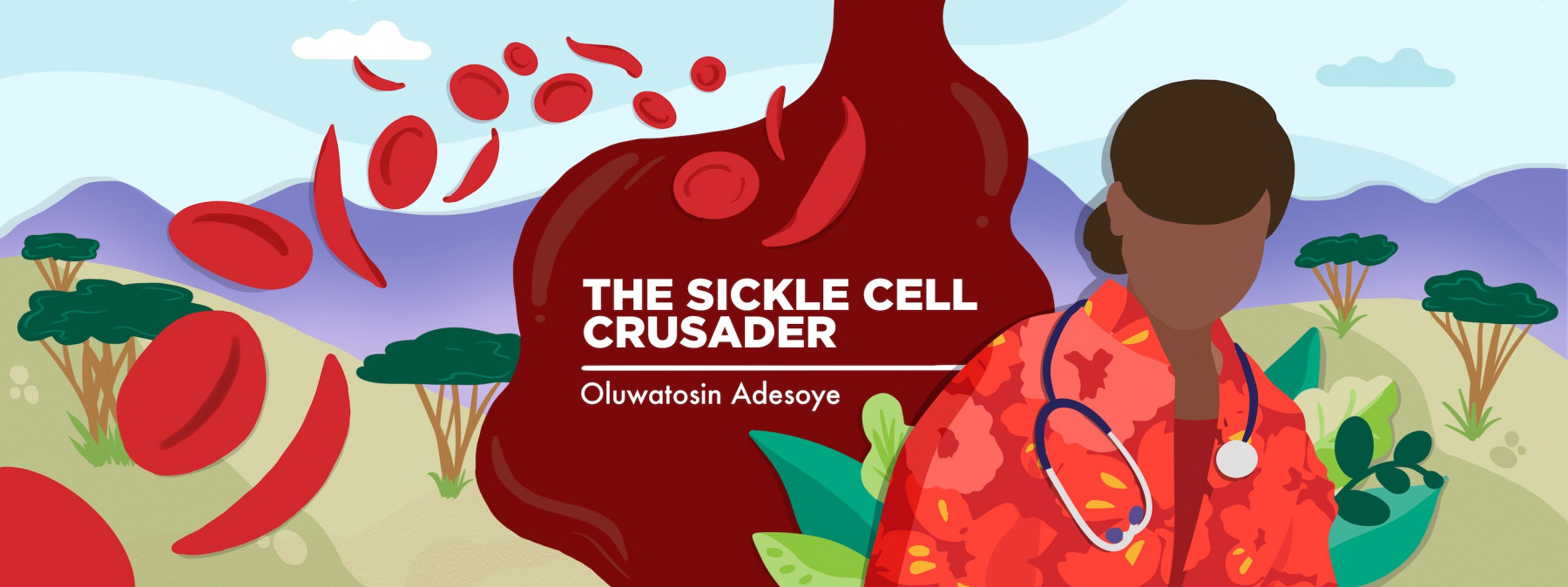What health professionals shouldn’t say to sickle cell patients, Part 1
A columnist offers her unique insight as a physician and sickle cell warrior
Written by |

First in a series.
Living with sickle cell disease can be incredibly challenging, especially when healthcare professionals make inappropriate and hurtful remarks. These comments contribute to poor pain management and health outcomes, and perpetuate stigma and discrimination against sickle cell patients.
As a physician and sickle cell warrior, I feel compelled to address some of these statements and advocate for a more compassionate and understanding approach to sickle cell care.
Not all sickle cell patients look the same
Health professionals may often say, “You don’t look like a sickle cell patient” if the individual doesn’t fit into their preconceived notion of what a sickle cell patient looks like.
Growing up, I encountered countless doctors who made this remark to me. During my second hospitalization at the age of 11, my care team spent over 30 minutes in discussion, trying to understand why my appearance didn’t align with their expectations.
Although certain features are associated with sickle cell, including skull bossing, thin extremities, jaundice, and abdominal swelling, they are not universally present among warriors. People with sickle cell come in various sizes and heights; they can be obese or slim, tall or short. The absence of certain physical characteristics doesn’t necessarily mean a patient’s condition is less severe.
In addition, it’s important to recognize that sickle cell disease isn’t always visible. In many cases, sickle cell patients look just like anyone else and can’t be identified based solely on appearance.
When health professionals tell sickle cell patients that they don’t look like they have the disease, this can result in patients neglecting their healthcare, as they may assume their condition isn’t severe if they don’t fit the stereotype.
A patient’s pain is valid
Another frustrating statement patients often hear is, “If you were really in pain, you wouldn’t be using your phone. You must be pretending.”
These health professionals fail to acknowledge that individuals living with sickle cell disease have generally been managing it for years; it’s natural to seek ways to cope with the pain. Patients may use their phones, watch movies, listen to music, use social media, or get a massage as a distraction. Engaging in these activities doesn’t invalidate or eliminate their pain. It only helps them to cope — and it doesn’t always work.
Regardless, expecting someone in pain to appear or behave a certain way is unjust. Each person’s pain journey is unique, and their chosen methods for coping and finding respite should be respected rather than judged.
Health professionals should also refrain from making cold remarks like, “You should be used to the pain by now.” Expecting patients to get accustomed to their pain is insensitive and unrealistic, irrespective of how long they’ve been living with it.
As healthcare professionals, our primary responsibility is to provide appropriate treatment and help to alleviate pain, rather than placing the onus on patients to endure it.
Sickle cell isn’t the patient’s fault
Lastly, I want to address a harmful accusation directed toward patients: “It’s your fault you had a crisis.”
Unfortunately, many healthcare professionals make the mistake of blaming warriors for their vaso-occlusive crises. I have personally encountered this many times. A provider once claimed my complications were solely my fault because I allegedly didn’t drink enough water. The statement was based on mere speculation, without any certainty about my water consumption. While it’s true that dehydration can trigger a crisis, it’s crucial to understand that a pain crisis can occur with or without physical triggers.
The sickling process is a self-enabling cycle driven by external and internal triggers, which aren’t always within a patient’s control. A crisis can still occur, even if someone takes every precaution and adheres to proper measures. Therefore, it’s unacceptable to attribute every sickle cell crisis to a patient’s actions or choices.
In conclusion, healthcare professionals need to educate themselves about sickle cell disease, show empathy, and approach sickle cell patients with greater understanding. Harmful statements and assumptions can diminish quality of care and harm the mental well-being of sickle cell warriors. By increasing knowledge and fostering empathy and respect, we as providers can strive to enhance pain management, health outcomes, and overall quality of life for sickle cell patients.
Check back for the second installment of this series, in which I’ll discuss additional statements healthcare professionals should avoid making.
Note: Sickle Cell Disease News is strictly a news and information website about the disease. It does not provide medical advice, diagnosis, or treatment. This content is not intended to be a substitute for professional medical advice, diagnosis, or treatment. Always seek the advice of your physician or other qualified health provider with any questions you may have regarding a medical condition. Never disregard professional medical advice or delay in seeking it because of something you have read on this website. The opinions expressed in this column are not those of Sickle Cell Disease News or its parent company, Bionews, and are intended to spark discussion about issues pertaining to sickle cell disease.




Jacqueline Medler
I am encouraged by this awesome article. Please continue to up lift the Warriors.
Much Love, In Jesus' name, Amen!
Oluwatosin Adesoye
I appreciate your kind words. I encourage you to stay up to date with my future columns. Thank you for your support!
Adwoa
Great read! As a healthcare professional and a warrior parent I couldn’t agree more with you on this! I’m glad you’re able to channel your experience as a sickle cell warrior and advocate for others. Well done sis!